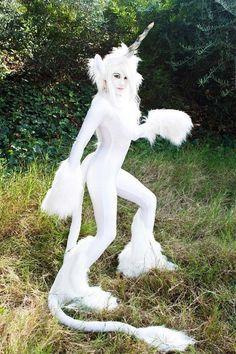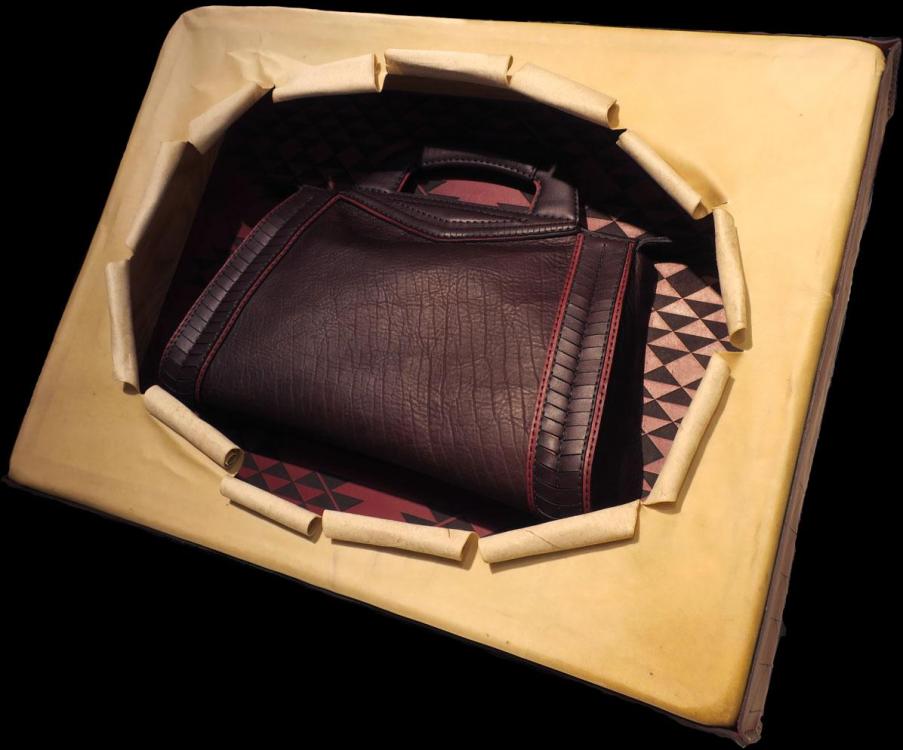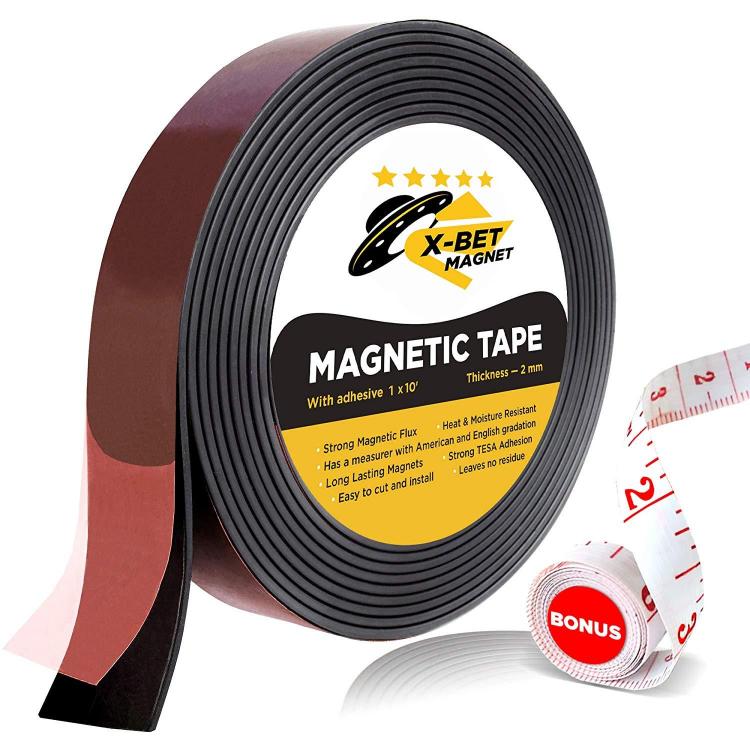
LatigoAmigo
Contributing Member-
Posts
1,012 -
Joined
-
Last visited
Content Type
Profiles
Forums
Events
Blogs
Gallery
Store
Everything posted by LatigoAmigo
-
I have split veg-tanned and it worked nicely, but had no luck splitting any of the chrome-tanned that I've tried. Probably operator error, but the blade simply would not cut into the material. I tried several adjustments, but could not get the blade to cut into the material. I have many different types of chrome-tanned leather, and did not try it on all of them, but only where I had a certain need, and that leather was heavily oiled with lots of pull-up, a very dense material.
-
Do you must mean the weight (thickness) of the leather? Probably 4-5 oz. will do. If you are asking dimensions, or the amount of leather to purchase, hard to answer with what was provided. Links are easy to post, but sometimes "disconnect" for a variety of reasons. If you are serious about getting a response, you will be better served if you post the actual image.
-
Since you location is not shown on your profile, I don't know where you are, so it is that much harder to suggest a source of cheap leather. Most leather is not cheap, and assuming that there is no leather supplier near you (some have great bargain bins), you might practice by making smaller items. Cutting, stitching, dying, burnishing, etc. can be practiced without spending too much time on each piece. I would scrap the idea of purchasing the foam sheets, as they have nothing to do with leather. At the worst, practice with canvas that you can purchase at a fabric store. In fact, many products are made using canvas and leather, and they can look pretty good together. That my 2¢.
-
... as long as you're not splitting chrome-tanned leather ... then it is quite a different story, one I learned the hard ($$$) way.
-
Please help me figure out how to make this fursuit.
LatigoAmigo replied to unokitsune's topic in How Do I Do That?
-
Second saddle, second place!
LatigoAmigo replied to Rolandranch's topic in Saddle & Tack Maker Gallery
It is inspiring to see someone so young brimming with such talent. Kudos to you... -
Bruce Grant says to "Use an extra long thong and work carefully." That is advice from the Sage himself.
-
There is no need to shout... we want to all be on our best behavior.
-
I use oil/beeswax on chrome tan all the time to provide a protective finish. As to the color changes, you will want to experiment on some scrap first. Some chrome tanned leathers can change color after the oil/wax application and some won't. One thing you might notice is that when applying a finish/conditioner to chrome tanned leathers, some color might rub off, but not always.
-
Edge lacing can take many forms, sometimes lacing through the same hole more than once. Also, the thickness (weight) of the lace and the suppleness of the leather that you are lacing into can be a factor. There are too many variables involved to have a pat answer to your questions. You will just want to experiment with what you have to see what works best. Are you familiar with Bruce Grant's books on lacing? They cover a lot of ground, and you might find them to be helpful.
-
This is my take on the topic. I've created a little demo showing where to start, where to finish, and when the "trick" happens. In the PDF I've attached here, when I say "over and under," I mean like Al Stohlman demonstrates in his book "The Art of Hand Sewing." Any feedback will be appreciated. Watchstrap step by step 2.pdf
-
Ideas for a leather sheath?
LatigoAmigo replied to Plainsman's topic in Gun Holsters, Rifle Slings and Knife Sheathes
-
Not sure of UK sources, but you might look at what fabric stores sell, called fusing. It is a fabric stiffener that you can simply iron onto flesh-side of the leather, no gluing necessary. It should work great with upholstery grade leather. Heat n Bond is one brand name.
-
It provides us with this no-cost forum to discuss things that matter... leather working.Now I think about that all the time.
-
Fridge magnet sticky blanks, by the bulk. Anyone sells them?
LatigoAmigo replied to DrmCa's topic in Suppliers
I use magnetic tape in my shop. I got it from Amazon for just $12.99. https://www.amazon.com/Flexible-Magnetic-Tape-Adhesive-Projects/dp/B078SZLKRC/ref=pd_cp_328_2/142-9745976-1700368?_encoding=UTF8&pd_rd_i=B078SZLKRC&pd_rd_r=db1ec382-205f-4058-b1ec-e3f738e17185&pd_rd_w=u2DFR&pd_rd_wg=TqX6N&pf_rd_p=592dc715-8438-4207-b7fa-4c7afdeb6112&pf_rd_r=1W6QQHDZA4WXG08RNJ4B&psc=1&refRID=1W6QQHDZA4WXG08RNJ4B -
Patterns/Templates Copy Right
LatigoAmigo replied to stampingdelight's topic in Patterns and Templates
I have been watching a documentary about art auctions called "The Price of Everything". It is about the (crazy) value of some art, typically after the artist has sold it (or given it away). So in this case, if someone gives me a gift, can I sell it? ... of course I can, because I own it. Apparently I have no liability because I didn't make it. This is an interesting topic, to which there are no simple answers. It boils down to the ethical question of "can you sell something that might be the intellectual property of someone else without their permission?" No clear answer, and certainly a problem for those who feel they are getting ripped off. -
time for the next level using computer software
LatigoAmigo replied to wydfuqnopn's topic in Patterns and Templates
Search for Pattern Making Software and/or Pattern Software on this site and you will see that this topic has been discussed many of the members. Since free isn't imperative, I use Adobe Illustrator. It has a high (subscription) price and a fairly steep learning curve, but, if you can get past that, it's a great program. -
Leather Cuirass & Belt
LatigoAmigo replied to PeterO's topic in Purses, Wallets, Belts and Miscellaneous Pocket Items
Wow, that's doin' some talkin'. Very nice.- 15 replies
-
- leatherarmor
- armor
-
(and 3 more)
Tagged with:
-
The fibers of chrome tanned leather do not lay down and smooth out like veg tanned does, thus tokonole.
-
This is going to be a challenge, as the edges of these two leathers finish very differently, and will probably not meld together very well. That being said, my first choice for finishing the edge of chrome tanned leather is a product called "Seiwa Tokonole Leather Finish Burnishing Gum." Easy to apply, water based, comes in black. It works well with veg tanned leathers too.
-
They will typically remove some color and leave the leather darker, but it depends on the leather in question. Not all hides respond the same way, even when they are the same type of hide from the same supplier. It really has to do with the specific hide in question. It is better to wipe off the excess color than have the excess color rub off on your customer.
-
I always do it, because the surface of the leather could have been affected by handling prior to purchasing. Plus, it will remove any excess coloring agent from the finish, allowing Aussie to better penetrate. I prefer either Farnam's New Saddle Soap Foam and Farnam's New Glycerine Saddle Soap (Spray). I find that they are easier to apply and gentler to the surface of the leather.





